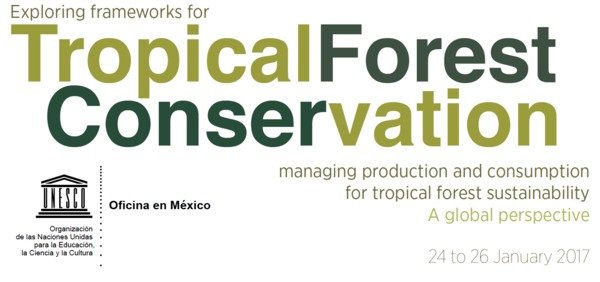
Dr. Patrick Roberts of the Department of Archaeology, Max Planck Institute for the Science of Human History has taken part in the “Exploring frameworks for tropical forest conservation” this week organized by UNESCO in Mexico (24th-26th of January, 2017). This meeting brought together archaeologists, anthropologists, ecologists, conservation scientists and local occupants and users of tropical forest environments in order to develop a proposal for global tropical forest conservation policy. Outcomes include suggestions for natural and cultural heritage tropical forest sites that should be placed on the World Heritage list and conservation, cultural and environmental policies that should be globally adopted to promote the sustainability of tropical forest utilization.
Patrick gave a talk entitled ‘Late Pleistocene tropical forest forager sustainability and resilience’ in order to provide the long-term perspective of human utilisation and modification of tropical forest environments. Today, tropical forests are some of the most threatened terrestrial environments on the planet. However, archaeological research is now revealing that humans manipulated and made use of these habitats for millennia. Crucial to this was an intimate local knowledge of forest dynamics and composition that is becoming lost in an era of industrial and urban expansion. The maintenance of such local knowledge networks is essential if we are to continue profitable interactions with these environments in the future.
This is the second time that Patrick has been involved in a UNESCO meeting centred on tropical forest conservation, with previous participation resulting in the publication:
Roberts, P. 2017. Early human adaptation to Late Pleistocene-Holocene rainforests in South Asia. In N. Sanz (ed.). Exploring Frameworks for Tropical Forest Conservation: managing production and consumption for sustainability. Mexico City: UNESCO.